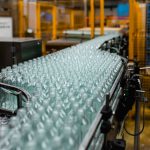
What is Bio-Based Plastics?
Generally, bio-based plastics means plastics that are sourced from non-fossil carbon.
We need carbon to make plastics, and we have been using fossil-based carbon for a very long time.
Fossil based materials are finite. Earth Policy Institute reported that approximately one trillion single-use plastic bags are used yearly across the globe.
That is a whopping number of less than 2 million per minute! Most of these are petroleum-based plastics. The way plastics are producing right now, we are indeed accelerating fossil materials to its depletion.
But today, it is possible to make plastic from any kind of feedstock or biomass.
You may hear buzz words like bio-sourced, bio-based, renewable feedstock, plant-based, or vegan that refers to the non-fossil origin of plastics. They mean nearly the same thing, but there is one big difference.
It is whether you include carbon from animal origin or not.
Defined by the standards of EN 16575:2014, we consider bio-based that comes from the biomass. There are a few generations of bio-based fuels that we can use to make plastic.
- The first generation of bioplastics uses food crops such as sugarcane and corn.
- The second-generation uses waste from non-food resources like wood and organic waste.
- The third generation uses soil-less farming and non-food resources like algae and seaweed to make plastic. That is usually called blue bioplastics.
- The fourth-generation uses captured CO2 as feedstock.
So, what are the advantages of bioplastic?
Bio based plastics vs. Plastics
What are the advantages of bio-based plastics?
- Carbon-free renewable feedstock
- Reduced carbon footprint. Some bio-based polymers or plastics are lighter and thus more performance than petroleum-based plastics.
- Gets the best out of our waste stream
Most of all, Bio PE is reusable and recyclable, just like any standard PE. Used plastics can be reused once again.
Is Bio based plastics Biodegradable?
Bio-based plastic is often confused with biodegradable.
Bio-based refers to the source of substance used to make the plastic. In contrast, biodegradable relates only to the fact that the material can degrade at the end of its life back into biomass or carbon dioxide (CO2).
Once produced, the bio-based polymers behave precisely like standard polymers. They would have some mechanical properties and sealing properties, and importantly they will also have the same reliability.
Bio-based plastics will go through the recycling process into PE or polyolefin streams, exactly like standard PE.
From Finite Based to Renewable Based
The shift from fossil material like petroleum, coal, and natural gas to safer and more renewable materials
Everyone knows fossil made materials are all around us, and for so long, we felt like we did not have any choice or alternatives.
Until discovering bio-based materials, we can now make plastics from sugar cane, corn, and even seaweed.
But how about obtaining it from wood that is proposed for consumption anyway?
How to Make Bioplastics
So how are bioplastics made? There are many sources that plastics can be obtained from natural non-fossil sources, but Thong Guan’s choice would be to make plastic bags from bio-based resins.
To make bio-based resins, the tall oil is derived from wood waste. These collected fibers would typically otherwise be wasted and discarded so repurposing them to gain biomass for plastics is a splendid move to preserve our environment.
Our fibers are collected from the well-managed forest. Trees are replanted and keep on growing for the purpose of commercialization.
Such forests are known as “sustainable forests” that are FSC (Forest Stewardship Council) approved that don’t affect forest reserves. Trees here are allocated to be used to make products like paper and other consumer materials.
It does not upset our ecosystem and our food supply, too, as it does not take from crops meant for food consumption.
Our Bioplastic Solution
100% of bioplastic resins are certified by ISCC, a globally applicable sustainability certification system. It covers all sustainable feedstocks, including circular and bio-based materials, agricultural and forestry biomass, and renewables.
We have bioplastic products ranging from plastic bags, garbage bags, stretch film, biohazard bags, shrink film and even meat liners. These products fall under Thong Guan’s Live Green sustainability solutions.
Not only that, but we also specialize in meeting your customization needs to create any type of packaging bags to suit your industry needs.
What about the quality of our bio-based products?
Through our partnership with Newton R&D Center, we have put our products through in-depth testing to see if it passes damage tests from all sorts of extreme situations. We are happy to announce that our bioproducts exhibit high impact strength and puncture resistance.
This means less damage to goods, secured deliveries, and less pollution to the earth too.
In fact, bio-based plastics are climate-neutral as each tree absorbs as much CO2 in its lifetime as it emits when it decomposes or is burned.
In other words, you are helping to remove CO2 from the environment when you use bioplastic products.
This way, you can care for the earth while protecting your product at the same time.
Other Benefits of Bio-Based Plastics
Using bio-based packaging also helps you profit by reducing taxes. The Bangkok Post reported that Thailand reduces tax on companies that adopt bioplastics, while Schroder’s reported that some countries like the United Kingdom levy more tax for normal PE usage.
The use of recycled bio-based PE helps you to achieve sustainability goals set by the UN in 2015 to promote the circular economy too. Though not mentioned directly, it can be reflected on goals
- SDG 3: Good health and well-being.
- SDG 6: Clean water and sanitation.
- SDG 11: Sustainable cities and communities.
- SDG 12: Responsible consumption and production.
- SDG 13: Climate action.
- SDG 14: Life below water (protection of the seas and oceans).
- SDG 15: Life on land (restore ecosystems and preserve diversity).
Bioplastics: A Sustainable Future Ahead
Thanks to bio-based plastics, you can use and recycle your plastic packaging with ease, knowing that your waste will be cycled back again as usable plastic in another product life.
You become part to help accelerate the circular economy, and your plastic usage will not contribute to climate change.
The results of the bio-based materials are the same as any everyday plastics. It is durable, protective, and unlike single used plastics, 100% recyclable too.
Let us reduce dependency on crude oil and go forward with renewably sourced plastic packaging.
We can reduce the global plastic problem together.
Contact us at info@thongguan.com for more info or to enquire more today.






No comment yet, add your voice below!